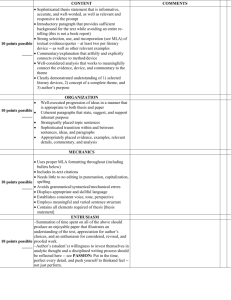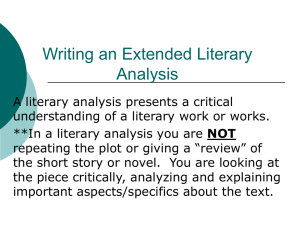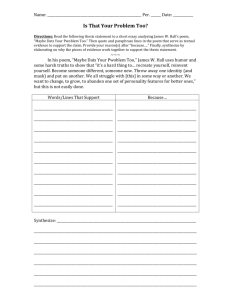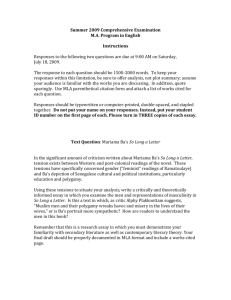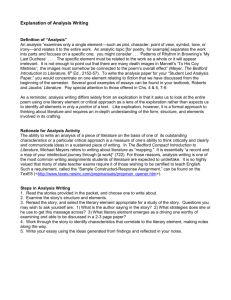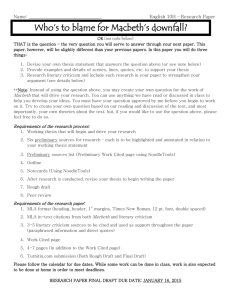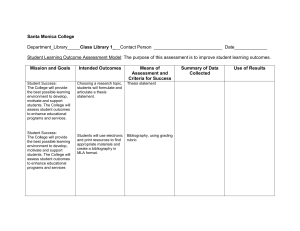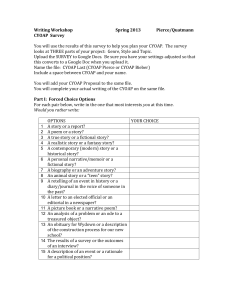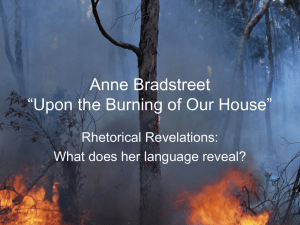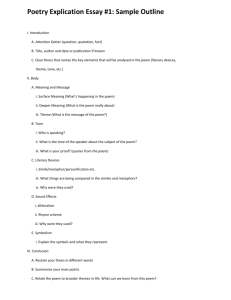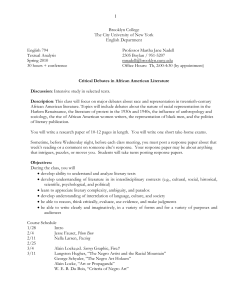Senior Self-Guided Research Paper Assignment
advertisement
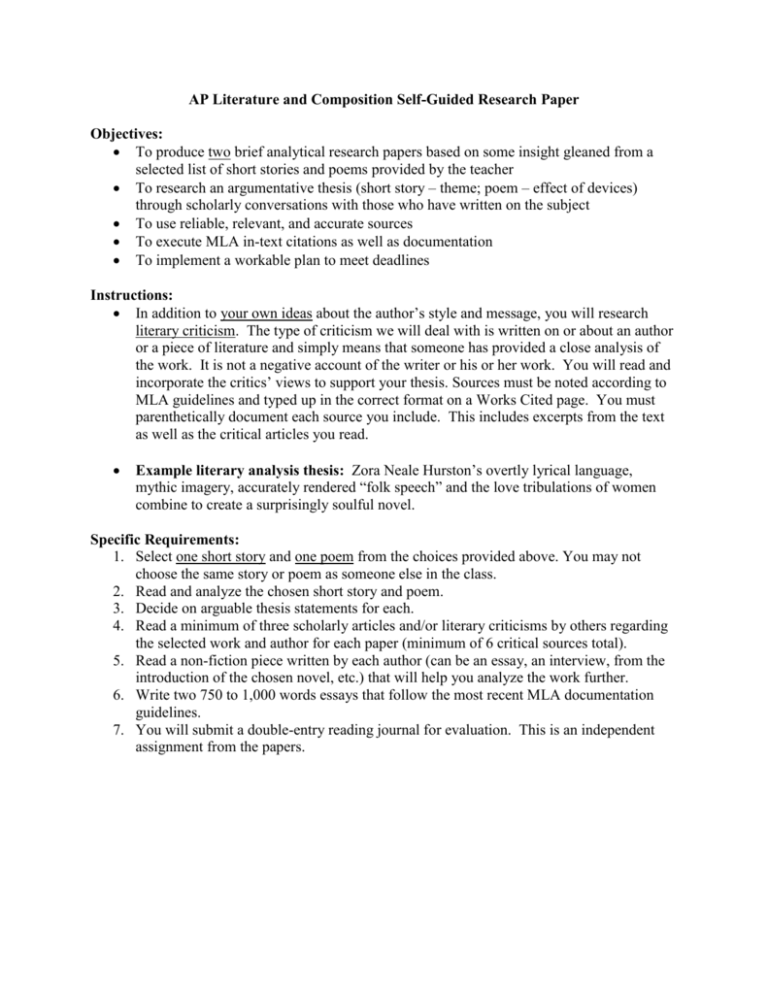
AP Literature and Composition Self-Guided Research Paper Objectives: To produce two brief analytical research papers based on some insight gleaned from a selected list of short stories and poems provided by the teacher To research an argumentative thesis (short story – theme; poem – effect of devices) through scholarly conversations with those who have written on the subject To use reliable, relevant, and accurate sources To execute MLA in-text citations as well as documentation To implement a workable plan to meet deadlines Instructions: In addition to your own ideas about the author’s style and message, you will research literary criticism. The type of criticism we will deal with is written on or about an author or a piece of literature and simply means that someone has provided a close analysis of the work. It is not a negative account of the writer or his or her work. You will read and incorporate the critics’ views to support your thesis. Sources must be noted according to MLA guidelines and typed up in the correct format on a Works Cited page. You must parenthetically document each source you include. This includes excerpts from the text as well as the critical articles you read. Example literary analysis thesis: Zora Neale Hurston’s overtly lyrical language, mythic imagery, accurately rendered “folk speech” and the love tribulations of women combine to create a surprisingly soulful novel. Specific Requirements: 1. Select one short story and one poem from the choices provided above. You may not choose the same story or poem as someone else in the class. 2. Read and analyze the chosen short story and poem. 3. Decide on arguable thesis statements for each. 4. Read a minimum of three scholarly articles and/or literary criticisms by others regarding the selected work and author for each paper (minimum of 6 critical sources total). 5. Read a non-fiction piece written by each author (can be an essay, an interview, from the introduction of the chosen novel, etc.) that will help you analyze the work further. 6. Write two 750 to 1,000 words essays that follow the most recent MLA documentation guidelines. 7. You will submit a double-entry reading journal for evaluation. This is an independent assignment from the papers. Suggested Essential Questions: How do authors use literature to display humanity’s struggle between the noblest of ideals and the basest of emotions? How much control do we have over the evil within us? Can a situation of circumstance corrupt us? How does society define and shape us? Who exists in “otherness” and why? To what extent can you employ the concepts of Freudian psychoanalysis to understand the motivations of literary characters? Short Stories List: 1. Chinua Achebe – “Dead Men’s Path” 2. James Baldwin – “Sonny’s Blues” 3. John Cheever – “The Five-Forty-Eight” 4. Kate Chopin – “The Story of An Hour” 5. William Faulkner – “Barn Burning” 6. Nathaniel Hawthorne – “Young Goodman Brown” 7. Ernest Hemingway – “A Clean, Well-Lighted Place” 8. Zora Neale Hurston – “Sweat” 9. Ha Jin – “Saboteur” 10. James Joyce – “Araby” 11. D.H. Lawrence – “The Rocking-Horse Winner” 12. Gabriel Garcia Marquez – “The Handsomest Drowned Man in the World” 13. Flannery O’Conner – “A Good Man is Hard to Find” 14. Edgar Allan Poe – “The Tell-Tale Heart” 15. Katherine Anne Porter – “The Jilting of Granny Weatherall” 16. John Updike – “A & P” 17. Alice Walker – “Everyday Use” 18. Eudora Welty – “A Worn Path” Poet List: W. H. Auden Elizabeth Bishop William Blake Anne Bradstreet Gwendolyn Brooks Robert Browning Lucille Clifton Samuel Taylor Coleridge Billy Collins Emily Dickinson H. D. (Hilda Doolittle) Rita Dove John Donne T. S. Eliot Robert Frost Thomas Hardy Seamus Heaney George Herbert Langston Hughes Gerard Manley Hopkins Ben Johnson John Keats Philip Larkin Robert Lowell John Milton Marianne Moore Sylvia Plath Alexander Pope Adrienne Rich Anne Sexton Cathy Song Wallace Stevens William Shakespeare Percy Bysshe Shelley Alfred, Lord Tennyson Walt Whitman Richard Wilbur William Carlos Williams William Wordsworth William Butler Yeats
